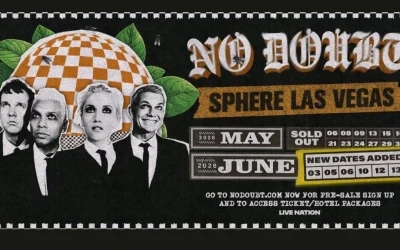Three of the four suspects in the Wiseguy Tickets computer hacking case pleaded not guilty in federal court in New Jersey Tuesday, March 2, and the alleged owner of the company remained in custody pending a bail hearing scheduled for today.
Kristofer Kirsch posted a $1 million bond, while Joel Stevenson posted a $500,000 bond and both are currently free. Suspect Faisal Nahdi is out of the country and is negotiating his surrender, according to federal prosecutors.
But Kenneth Lowson, the alleged ring leader, could have his bail set at well above $1 million today when he is arraigned, his attorney, Mark Rush, told TicketNews.
“My client is looking forward to vigorously defending himself in this case,” Rush said. “At the end of the day, is this a federal crime or not? We don’t believe it is.”
The four suspects are accused of multiple counts of conspiracy, wire fraud and various cyber crimes for allegedly using computer software programs called “bots” that could worm their way past internet security protocols to obtain thousands of tickets to popular concerts, sporting events and theatrical plays. Tickets to New York Yankees games, performances of the hit musical “Wicked”, and concerts by Bruce Springsteen, Bon Jovi, Phish, Kenny Chesney and Miley Cyrus were among the events the “Wiseguys” allegedly hit. Among the Web sites where the group allegedly procured large amounts of tickets was Live Nation Entertainment’s Ticketmaster, the world’s dominant ticket company.
Federal prosecutors said Wiseguy Tickets wholesaled tickets to brokers in New Jersey and around the country, and they used “aliases, shell corporations, and fraudulent misrepresentations” to carry out their alleged scheme. But, Rush said his client and the other Wiseguys were simply businessmen who came up with technology that essentially allowed them to get to the head of the digital line for internet tickets, much like fans who used to camp out overnight to be first in line to buy tickets at the box office.
Wiseguy Tickets allegedly generated profits in excess of $25 million by selling more than 1.5 million tickets to other brokers over a several-year period. Federal prosecutors did not say what, if anything, might happen to brokers who bought tickets from the Wiseguys, and a spokesperson for the Newark, NJ U.S. Department of Justice office did not immediately return a message seeking comment.
Rush said he did not know how many clients Wiseguy Tickets has.
“The cornerstone of the government’s case is about ticket brokering, which my client was doing,” Rush said. The Pittsburgh-based attorney specializes in litigation cases involving media and entertainment, antitrust and trade regulation, commercial disputes and government enforcement. “Congress has not legislated ticket brokering as illegal.”
Rush declined to discuss specifics about how he planned to defend his client, but he does not buy the federal government’s implication that Ticketmaster was a “victim” in the case.
“They sit atop a multi-billion dollar industry, and they have their own ticket brokering operation [TicketsNow and TicketExchange],” he said. “We’re going to look into everything as it relates to this case.”
Rush was quick to add that he understands the daunting task ahead of him. “When the federal government decides to indict you – with the weight of its agencies and vast resources – that is a very fearful prospect, but my client is looking forward to his day in court.”


